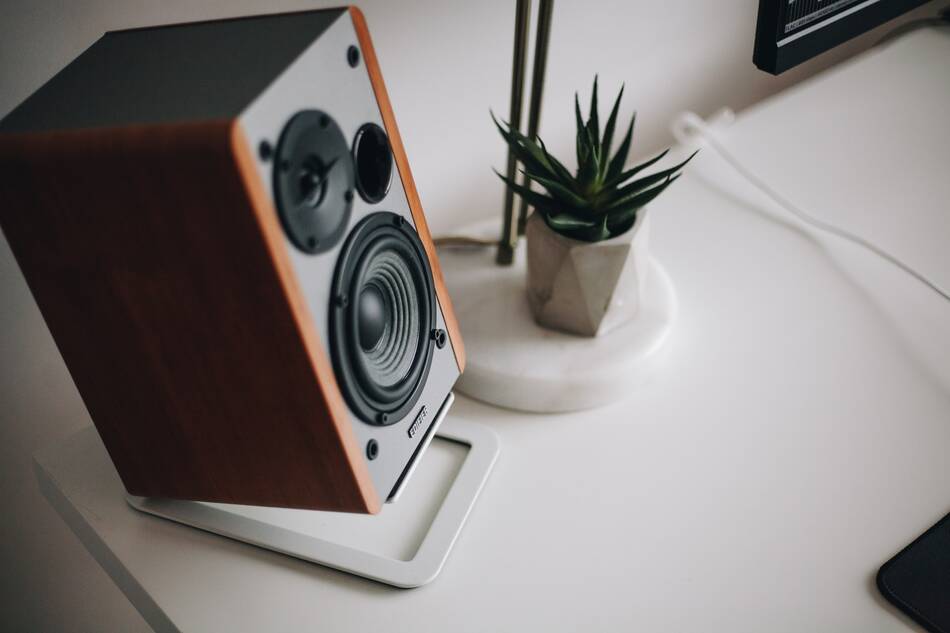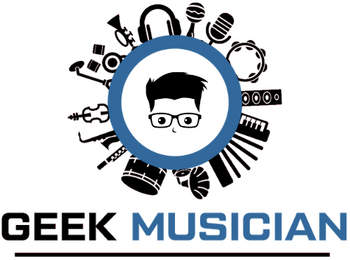
Perhaps, you have noticed your speakers getting warm after extended use. But can speakers overheat?
In short, yes. Speakers can overheat. When you play a distorted audio signal at a loud volume through the speakers, it can easily overheat the speaker’s voice coils and potentially damage it. Connecting your speakers to an overpowered amplifier can also cause it to overheat and possibly break it.
If you want to dive much deeper into this topic, keep reading because we’ll discuss, in detail, the factors that cause speakers to overheat. And then later in the article, I’ll give you some tips on how to prevent it from happening.
Table of Contents
What Causes Speakers to Overheat?
Under normal conditions, speakers are not supposed to produce any noticeable heat. But this is not always the case. Certain situations will cause a speaker to heat more than regular. So it’s important you are aware of them so that you don’t put your expensive gear at risk of damage.
Here are three factors that cause speakers to overheat.
1. Loud distorted signal
I explained this concept in much detail in this article. Feel free to check it out if you want to learn more. However, I’ll briefly highlight how loud distorted signals overheat speakers and possibly damage it.
Speakers have a sensitive component known as the voice coils. This is the most important component of a speaker. What the voice coil does is, it receives an electrical signal from the amplifier and interprets it into sound waves.
It does this by moving back and forth at different distances, depending on the amplitude of the electrical signal. This back and forth movement of the voice coil is known as excursion.
As the voice coil moves, it causes the speaker cones to push air, and that produces the sound waves we hear. This is an overly simplified explanation of how a speaker works, but it works for our context.
Now here is where things begin to go bad.
When you play a very loud and distorted signal, the power amp passes a very high distorted electrical current to the voice coils. And this causes the voice coil to travel back and forth excessively way beyond its limits. This excessive movement of the voice coil is known as over-excursion.
The high and inconsistent electrical current sent by the power amp causes the speaker’s voice coil to overheat, and eventually, it breaks. This will damage your speakers, and you may have to repair or replace it.
2. Overpowered amp
For those who don’t know what an overpowered amp means, it’s simply an amplifier that’s too powerful for the speakers that will be connected to them.
Every speaker has a power rating, and this tells you the amount of power required to drive them. The recommended option is to find a power amp with the same power rating as that of the speaker.
However, if you already have a power amp which has a much higher power rating than the speaker’s rating, you can still use it. But you have to match the amp’s gain to the speaker’s power rating. Amp to speaker matching is a totally different topic way beyond the scope of this article. You can check this video by Sonic Electronix if you want to learn more.
If you connect a speaker to an overpowered amp and you fail to match the gain of the amp to the speakers, the speaker voice coil will overheat and burn.
Let me explain in a bit more detail. When an overpowered amp is properly matched with a speaker with lower RMS power rating, it will deliver a reduced electrical current to the speakers. But when you fail to match the amp to the speaker, the amp will send a much higher electrical current to the speakers than it can handle.
This high current from the amp will cause the speaker voice coils to move excessively beyond its limit. That will cause the speakers to overheat and potentially burn in no time.
3. Direct Sunlight
Perhaps you enjoy taking your Bluetooth speakers with you to the beach or the park, or maybe you are a sound engineer who plays many live shows in the summer. Whatever the case, your speakers can overheat due to sun rays hitting them directly.
Although the electronics in the speakers are susceptible to heat damage, sunlight will not cause any permanent damage to the speaker components. However, it will definitely affect the performance of the speakers in a way.
Fortunately, there are speakers available that are heat resistant. A good example is the eXuby Outdoor Bluetooth Speakers (on Amazon). These speakers, in particular, are designed for the beach, park, or any outdoor space with direct sunlight. This unit never overheats because it’s designed to resist heat. It also supports a micro SD card, USB flash drive, and it’s incredibly loud with a lot of bass response.
Most line arrays and outdoor speakers designed these days are heat resistant. So you don’t have to worry about your speakers overheating due to sunlight.
Is it normal for speakers to get hot?
It’s completely normal for speakers to get hot. After the speakers convert the electrical signal from the amp into sound, the remaining power is dissipated into heat. However, the speakers should not get too hot to touch.
If the speakers overheat and become too hot to even touch, that’s abnormal. It could be one of the three possible factors we have already discussed. Also, the speakers could be faulty, and you have to repair or replace it.
Do subwoofers get hot?
Subwoofers get hot when you turn the volume up too high that the signal begins to clip. They can also get hot when connected to an overpowered amp without proper amp to speaker gain matching.
It’s normal for subwoofers to get warm every once in a while, especially when you play audio through them for an extended period. But when they get too hot, it means you are driving it too hard, and you need to dial things down a bit.
As I explained earlier, subwoofers can also get hot when they are driven by an overpowered amp without gain matching. This can easily damage the subwoofer’s electronic components due to overheating.
How to Prevent Speakers from Overheating
Here are six tips that will help you keep your speakers from overheating.
1. Don’t overdrive the speakers
The most common way speakers heat up is when you play a loud distorted/overdriven signal through it. To prevent this, ensure you don’t increase the volume way beyond the limits of the speakers.
Once you notice the audio from the speakers distorting, it’s a sign that you are overdriving the speakers. And that will cause the speakers to overheat. To simply avoid this, keep the speaker volume at an acceptable level.
2. Use speakers under a shed
It’s a good idea to keep all electronics, including speakers under a shed when you are using them outside. This will prevent sunlight from heating the speaker and its components.
If you use your speakers indoors, ensure the sunlight doesn’t get to the speakers through the windows.
3. Always match the speaker to amp
You need to have the right amplifier for your speaker. Driving your speakers with an overpowered amp will always overheat the speakers. So, I highly recommend you check the power rating of the speakers and compare it to the power rating of the amp.
And then perform amp to speaker gain matching so that the amp delivers the required power to the speakers.
If you are using an active speaker, you don’t have to worry about this because the manufacturer has the right amplifier installed in the unit.
4. Use speakers in a ventilated area
If your speakers are installed in a cabinet or a box that hinders ventilation, then it’s time to change their positions.
Speakers need proper ventilation in order to dissipate heat. When they don’t have the proper ventilation, they can overheat pretty quickly, and you certainly don’t want that to happen. So, install and use speakers in a location where there is enough airflow to cool the speakers as they heat up.
5. Use a ventilation fan
Another way to keep your speakers from overheating is to use a ventilation fan. This is not the best option because natural airflow should be enough to keep the speakers cool. However, if that’s not the case with your speakers, then use a ventilation fan to cool the back of the speakers.
This method is much better when using an open back speaker like guitar amp cabinets. However, they can work for closed-back speakers as well, but not as effective.
6. Don’t stack the audio components
Another mistake many people make is, they put speakers right on top of the amp or on one another. This can actually cause your speakers to heat up pretty quickly.
By virtue of heat transfer, when the amp heats, it will transfer the heat to the speakers sitting on top of it, and then that will also be transferred to the next unit and so on. And all the speakers and other components can overheat very quickly.
To prevent this, simply install the speakers in a location where they don’t touch each other or touch any other component in your audio system.
Conclusion
In summary, speakers can overheat when you overdrive it, when placed under direct sunlight, or when they are driven by an overpowered amp. It’s completely normal for speakers to get warm after being used for a while, but it shouldn’t get too hot.

Hi, I’m Raymond. A keyboard player, music producer, and writer. And I’m also the founder of this blog. As someone who has been working with several audio and music equipment and different musicians for many years, my goal is to answer all your questions on music and equipment, as well as the latest music software and technology. For more info, check out my about me page

